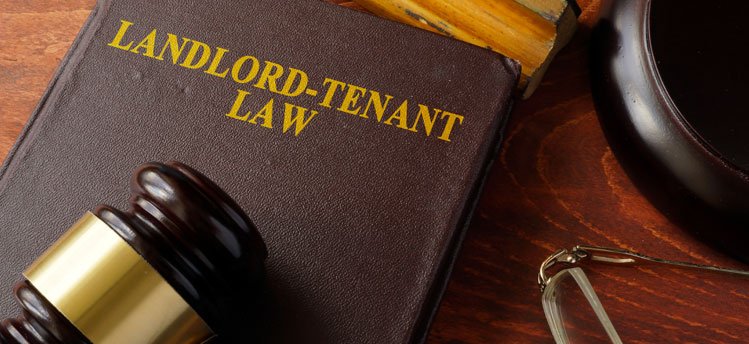How to EASILY Rent Out Your Property

Do you ever have one of those days where you just want to drop everything and travel?
All you want to do is pack up your necessities, leave your job for a bit and hop on a plane.
But, what’s holding you back?
Finances, family or your home?
You can always make more money and your family will still be around when you return.
So, what do you do with your home?
Simple: rent it out!
Renting out your property gives you the luxury to keep your home, while being away. It’s the perfect scenario if you are looking to leave temporarily, but want to return.
PLUS – tenant’s pay a monthly rent, which can be used towards mortgage payments. It’s a win-win.
Here’s everything you need to know about how to rent out your property.
Why rent out my property?
Before jumping into your decision to rent your property, you need to ask yourself if renting or selling your home is more suitable for you.
This decision can be reached by evaluating your personal situation, finances and career. If you have decided renting is a more appropriate option, there are countless benefits to support your choice.
Renting your property gives you the advantage to own your home while the tenant pays monthly rent.
Typically, the tenant’s rent is used for monthly mortgage payments. This situation allows you to build wealth and equity without paying directly for mortgage. It is common for landlords to aim for a renting price for more than their mortgage payments, so they can make some extra cash.
In certain cases, this can work, however, be mindful of what other surrounding homes are doing.
Owning a home is a huge investment and has the ability to build wealth. Renting out your home can help get you a jumpstart on your investment funds. By renting out your home, you have the ability save money and upgrade to a larger property or save up for retirement.
And obviously, when you rent, you have the option to return back home. This is appealing to homeowner’s that have to suddenly relocate for their career temporarily. If they are wanting to return to their home, renting out their property is financially and economically smart.
Where to start

Here are the steps on how to easily rent out your property:
1. Find a good tenant
To start this process on the right foot, you will need to find a good tenant to rent out your property.
By carefully reviewing candidates, you will feel more relaxed and comfortable with your decision.
You do not want to choose someone blindly without conducting a background check.
Knock on wood, you don’t encounter someone with question history. This could but you, your family, and home in danger.
To market that your home is available for rent, advertise in newspapers, online, or spread the news through word of mouth to friends, family or coworkers.
By being visible online or in print, you are increasing your likelihood of being seen. Sharing this information word of mouth is also an effective strategy.
Good news travels fast and that could lead you to a potential tenant.
Nonetheless, you need to find a trustworthy, reliable and accountable person to rent out your property. Looking for these qualities in interested candidates will make your final decision easier.
Once you have several potential tenants, you can begin your interviewing process.
Ask interested candidates to fill out a form with the following information:
- Full name
- Date of birth
- Phone number, email address
- Current employer (name, supervisor, hire date, contact information)
- Salary
- Emergency contact information
- List of all potential renters
- Previous landlords
- References
- Release of information statement
- Signature
The information requested above are necessary items to know. This will give you a better idea of who they are, their financial stability and presents you the opportunity to ask questions from an unbiased resource.
Having your interested candidates sign off on this document also holds them accountable and symbolizes they have read over your written lease and legally accepts your terms.
If you have a signed authorization, you are legally allowed to ask for the Social Security Number, so you can check their credit reports and conduct a criminal background check. **Make sure the company is accredited by the Better Business Bureau if pulling credit reports**
If you choose to conduct your own background check, be sure to follow this checklist:
a. Pull credit reports
This will give you a better idea of their spending habits, accountability and overall financial stability. Credit reporting agencies such as Equifax, Experian or TransUnion can assist you as long as you follow the guidelines of the Fair Credit Reporting Act (FCRA).
b. Check criminal background
You want a tenant with a clean background so you, your property and belongings are not damaged. Research state and local records online to evaluate their history. If you need extra tips and assistance, landlord.com has helpful advice on conducting tenant screening.
c. Contact references
Have potential tenants provide references such as previous landlords, employers or close friends. This will give you a better idea of how they are perceived by their peers.
2. Determine how much to rent

To accurately set a renting price, you will need to do some research. Start by checking with local newspapers, online realtor websites such as Craigslist, Zillow, or Trulia. Or, you can look at neighborhood rental signs to get an idea of how much to charge for rent.
You need to price your property’s rent accordingly by comparing it to similar homes in the area.
It may be lower than your mortgage payment, but, if you need to rent your home, it needs to be set at a comparable and attractive price. You need to be accommodating, yet competitive by offering a fair renting price, along with a modernized and up-to-date home.
If you have a high renting price compared to other homes, people will be more attracted to competing properties.
As for the security deposit, this is entirely up to you. You can choose the amount you want from your tenants.
However, some states and cities have limitations.
Before deciding on an amount, check with your local authorities. A safe and common approach is to set this value to equal one month’s rent, and maybe some, depending on how much you trust your tenant.
Once you have received their security deposit, it is highly advised to put it in a separate bank account. This will eliminate any financial confusion on your end and the money can be returned easily to the tenant after the lease ends.
3. Protect your rights with a lease

Having a written lease will protect you from any misunderstandings. This written document will address all responsibilities and duties that each party oversees.
A written lease will also limit confusion and clarify any logistical questions a tenant may have.
The written lease should also include your expectations and obligations your potential tenant should abide by.
As a landlord, you will need to provide these factors, along with suitable housing, fair rent and insurance options for renting tenants.
The more prepared you are, the easier this process will be.
A written lease should also include the following:
- A lease term (month by month renting versus annual renting regulations)
- Address of rental property
- Security deposit (usually one month’s rent or more)
- Rental due date and penalties
- Repairs and state who is responsible for what
- Maintenance responsibilities (i.e. lawn care, system checkups, etc.)
- List of tenants
- Rules of behavior (i.e. noise levels, neighborhood conduct, smoking policies, etc.)
- Pet regulations, restrictions and deposits
- Who pays homeowner association (HOA) fees
- Association rules the tenant must follow
- Arrangements and expectations for showings (if you plan to put your home on the market during the tenant’s stay)
- Eviction terms (i.e. not paying rent, damaging the property, etc.)
4. Get your property insured

As a homeowner, it is advised and smart to buy homeowner’s insurance. This policy covers the structure of the home, and damages to the property and your belongings.
Having insurance will protect you, your family, home and assets inside of the home.
Depending on the situation, homeowner’s insurance can be very handy.
However, when you become a landlord, homeowner’s insurance will not benefit you since you are not the primary resident. Instead, you will need rental home insurance.
This insurance policy covers your home’s structure, legal costs and loss of rental income if repairs are needed during the tenant’s stay.
As a landlord, you are not responsible for the tenant’s belongings, with that being said, you should advise them to buy renter’s insurance.
5. Hire a management company

When you use a management company, they take care of all the logistics and little details when renting out your property.
They are primarily in charge of the finances, consequences and handling repairs.
Management companies are extremely helpful if you are not interested in handling the responsibilities of being a landlord, and even finding a high-quality tenant.
If you decide to use a management company, they usually process two fees for their services, which include:
a. Finding a tenant
Management companies find qualified tenants through advertising, extensive background checks and interviews. They will handle this process and choose a tenant that meets your standards.
b. Management of property
Companies delicately handle all the financial aspects of renting, such as collecting monthly rent, charging late fees, handling repair expenses and dealing with early departures and evictions.
If you are interested in using a management company, you will need to find a licensed professional.
Property managers can be easily found through the National Association of Residential Property Managers’ (NARPM) website. All you will need to provide is your zip code to locate a manager near you. Or you can ask your real estate agent for a referral.
Using property managers not only takes weight off your shoulders, it eliminates any possible emotional connections with your tenant.
Often, homeowners develop some type of relationship with the tenant, which could make business messy and unprofessional.
By doing business through a management company, your tenants will still receive substantial service without getting too emotionally tied.
6. Prepare properly for evictions

Unfortunately, some tenants can cause complications and problems that can result to eviction.
As stated in your written lease, you addressed consequences and scenarios that can lead to being evicted.
If your tenant fails to acknowledge your rules, you have the right to evict them from your property. However, there is a specific protocol you need to follow.
For starters, in order to evict a tenant, you will need an attorney. If the tenant refuses to move, you cannot just move their belongings out of the home.
You will need to go to court and the sheriff will physically remove the person and their belongings if they are reluctant.
If you need to evict a tenant, be prepared to pay fees.
Depending on the case, legal fees can cost between $300-$1000.
Of course, all cases and reasons to evict are different and are used as a last resort. Be warned the final costs of this process can equal to a month’s rent.
To avoid this process all together, choose a tenant that understands your circumstances and recognizes all possible consequences.
To accept or deny?

After reviewing your applicants, evaluating their background history and checking credit scores, you are now able to make an informed decision.
If you are placed in a situation where you have two parties that are highly qualified to rent your property, choose the candidate that applied first.
This eliminates the suspicion of discrimination and makes your decision easier if using a first-come, first-serve basis.
However, if you encounter a candidate that does not qualify, you will need to respectfully decline their application.
When doing this, it is extremely important to list the reasons why they did not qualify. For example, if their credit score was too low or their background check revealed something questionable.
It is crucial to address your concerns so they don’t file a discrimination complaint.
If you have found the perfect candidate to rent out your property, you can verbally tell them they have been approved.
From there, you can proceed to the next step of the renting process – signing the rental lease agreement.
How to sign a lease agreement
To finalize this deal, schedule a time for you and your tenant to sign the lease agreement. Picking a time and location that works for both of you can be challenging.
To avoid this issue, plan to meet at the property on the day your tenant will be moving in.
This will give both parties the opportunity to address any issues or concerns before sealing the deal.
To make this process easier, highlight or flag sections where you need the tenant’s signature or initials indicating they understand and accept your terms.
How to accept rent

For first month’s rent, it is a good rule of thumb to require tenants to pay using a cashier’s check or a money order.
Never accept a tenant’s payment if they use cash or a personal check. This could potentially complicate things or checks can bounce, creating the possibility of eviction.
For future rent payments, you will need to decide on a payment form that works best for you. It has been advised to never pick up rent in person.
If you use this approach, your tenant will expect you to show up to collect rent.
When in reality, they should be responsible for delivering their rent to you.
More commonly, landlords accept mailing techniques or electronic transfers.
However, this is a trial and error process, you will change and adapt to different styles over the course of time.
Hand over the keys

Voila! You have done it.
You have found the perfect tenant, signed the lease agreement and collected first month’s rent.
You are ready to hand over the keys and start your new journey of landlord-ship.
Although your researching and evaluating process has come to an end, a whole new set of responsibilities are about to kick in.
Remember that you are their landlord. Meaning, it is your responsibility to make sure rent is paid on time; tenants are aware of late fees; tenants know how to contact you about repairs or other maintenance work; and the home is kept in good condition.
Once you have acknowledged these new responsibilities, you are able to continue your life elsewhere.
Leave a Reply